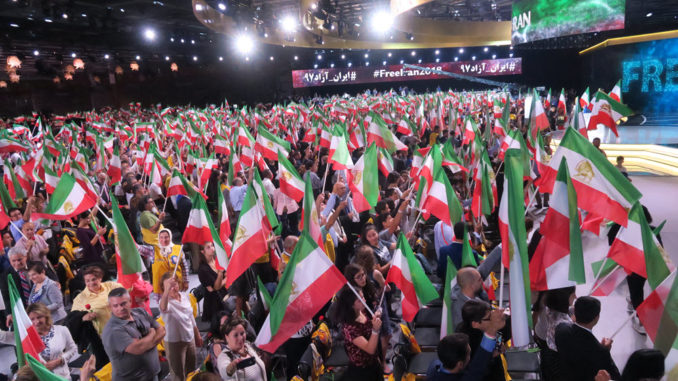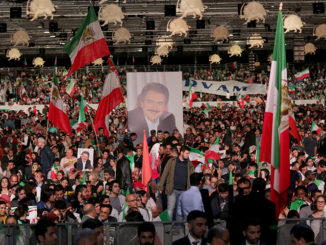
A number of European security services were involved in thwarting an Iran-plotted terror attack targeting the Iranian opposition “Free Iran 2018” convention held on June 30 just outside Paris. After a Vienna-based diplomat of Iran’s regime, Assadollah Assadi, was arrested in Germany in relation to this attack, all signs are now indicating that Tehran’s mullahs were fully behind this plot.
Despite the Iranian regime claiming this was a “false flag” operation, a senior US State Department official has flatly rejected such claims as ridiculous.
Ambassador Ken Blackwell, the former US envoy to the UN Human Rights Council, published an article in Townhall shedding light on this case and the Iranian regime’s long history of terror plots targeting its opposition.
“The foiled plot was the most significant Iranian terrorist undertaking in recent years, but not the only one. In March, another plot was thwarted in Albania, where there is a sizable presence of the People’s Mojahedin Organization of Iran (PMOI/MEK), the main Iranian opposition group and leading constituent of the NCRI coalition.
“Terrorist attacks by Iranian operatives and their proxies date back to the 1980s and 1990s. Tehran’s behavior has not changed in any meaningful way over the years. Over roughly the past two years, there have been multiple reports of German authorities disrupting efforts by the Iranian Revolutionary Guard Corps’ Quds Force to spy on individuals and groups with links to Israel as well as on MEK activists.”
The Iranian regime is known to specifically describe the PMOI/MEK as its main threat, acknowledging their effectiveness in directing the ongoing protests across the country against the regime’s interests.
“The regime’s authorities, including Supreme Leader Khamenei, have variously acknowledged the leading role of the MEK since the protests began. These statements leave little doubt about Tehran’s desperation to disrupt the pro-democracy movement both at home and abroad,” Amb. Blackwell continued, adding this attack “vividly illustrated the ayatollahs’ paranoid towards Mrs. Rajavi’s movement as a viable, democratic alternative to the regime in Tehran.”
It’s also interesting how Europe continues to emphasize on its already failed appeasement policy vis-à-vis the Iranian regime.
“The new spate of terrorism also undermines the false distinction, pushed by some in Europe, between Supreme Leader and Rouhani and his foreign minister Zarif when it comes to using of terrorism to advance their objectives,” he said.
“Of course, the perception of their differences will not be much disrupted if European authorities remain generally quiet about the plots they have foiled in recent months. Unfortunately, this is just what they have done so far. It is an unconscionable decision and one that threatens to shield terrorist masterminds from justice and from public scrutiny. In the first place, it puts lives at risk by downplaying the terror threat and by avoiding public pressure for a more serious political response. And in the second place, it represents the nations of Europe turning their backs on the democratic principles that are embodied by the targets of the most recent would-be attacks.”
Ambassador Blackwell also warns about inaction as the future becomes even more sensitive.
“The NCRI and its constituent groups are sure to be targeted on European soil once again in the future, unless European governments break their silence and take serious action to disrupt the years-old terrorist networks operating under diplomatic cover in Austria, Germany, France, and perhaps the entirety of the European Union.
“In the face of that threat, EU member states should seriously consider shutting down Iranian embassies or expelling diplomats who may well be associated with the IRGC Quds Force or the Iranian Ministry of Intelligence. In discussing the disruption of the Paris plot, a spokesperson for the Belgian judiciary acknowledged that “practically all employees of Iranian embassies are part of the Iranian Secret Service.” Yet political figures throughout Europe remain wary of saying such things out loud. This pattern of silence must come to an end, lest the threat grows still worse for European citizens as well as Iran’s pro-democracy opposition movement.”
Iran’s regime explicitly signals the very source of its main concerns, being the alternative to its entire apparatus found in the NCRI. Interesting to know that this broad coalition will be marking the 37th founding anniversary on July 21.
For too long this movement has been ignored. This must come to an end or else Iran’s regime will be allowed to continue wreaking havoc inside the country and abroad.
(Source: Analysis by PMOI/MEK)




